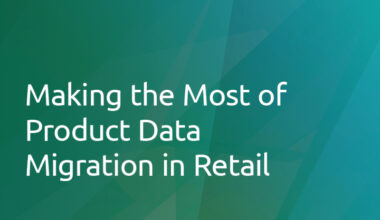The growth and potential of ecommerce are undeniable. With the rapid expansion of the digital marketplace and increasing consumer reliance on online shopping, businesses are consistently looking for ways to stand out and deliver unparalleled user experiences. One strategic advantage that’s proven to be game-changing in this space is data aggregation. This article delves into understanding its profound impact on ecommerce success.
Defining Data Aggregation
Before understanding its impact, it’s crucial to define what data aggregation is. In its essence, data aggregation is the process of collecting information from varied sources and presenting it in a consolidated, digestible format. This can be in the form of graphs, charts, reports, or any visual tool that simplifies complex data sets.
The Link Between Data Aggregation and Ecommerce Success
1. Informed Decision Making: One of the most direct impacts of data aggregation is the ability for ecommerce businesses to make well-informed decisions. By gathering data from various touchpoints, businesses can identify patterns, recognize trends, and make decisions based on concrete information rather than mere assumptions.
2. Personalized User Experiences: Today’s consumers expect tailored experiences. By aggregating user behavior data, ecommerce platforms can provide personalized product recommendations, content, and marketing messages, enhancing user engagement and, subsequently, conversions.
3. Optimized Marketing Campaigns: Aggregating data from different marketing channels enables businesses to identify which strategies are working and which aren’t. This means resources can be channeled more effectively, ensuring a better return on investment.
4. Streamlined Inventory Management: Through data aggregation, businesses can monitor sales patterns and predict future demand, ensuring they maintain optimal stock levels and minimize overhead costs.
5. Enhanced Customer Service: By aggregating customer feedback, reviews, and queries, ecommerce businesses can identify common pain points, enabling them to enhance their service and address recurring issues more effectively.
Challenges Posed by Data Aggregation
While the benefits are plentiful, ecommerce businesses must also navigate the challenges that come with data aggregation:
– Ensuring Data Accuracy: Inaccurate data can lead to flawed business strategies. Ensuring data integrity is essential.
– Data Security and Privacy: Aggregating vast amounts of data brings about concerns of data breaches and privacy issues. It’s vital for businesses to prioritize security measures and remain compliant with data protection regulations.
– Integration Difficulties: Many ecommerce businesses use a plethora of tools. Seamlessly aggregating data from all these different sources can sometimes pose a technical challenge.
The Road Ahead
As technology continues to evolve, so does the realm of data aggregation. The integration of artificial intelligence and machine learning promises even more refined data processing, offering insights with unprecedented accuracy.
Data aggregation’s role in shaping the future of ecommerce is evident. It offers a competitive edge, allowing businesses to understand their consumers better, optimize operations, and ultimately drive success. As the ecommerce landscape becomes even more competitive, the ability to aggregate and interpret data will undoubtedly separate the frontrunners from the rest. If you’re in the ecommerce sector, now is the time to harness the potential of data aggregation and propel your business towards greater success.
 1.416.619.5349 Ext.325
1.416.619.5349 Ext.325 







